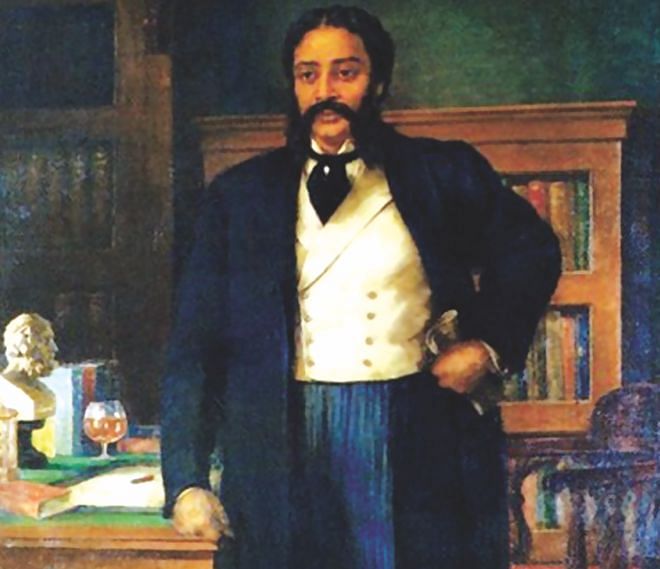A literary forerunner
A literary forerunner
Michael Madhusudan Dutt's 190th birth anniversary observed

January 25 marked the 190th birth anniversary of Michael Madhusudan Dutt, widely considered one of the greatest poets in Bengali literature and pioneer of the Bengali sonnet and Bengali drama. He initiated what came to be known as the Amitrakshar Chhanda.
On the occasion of his birth anniversary, the Jessore district administration has chalked out an elaborate programme. A week-long Madhu Mela is on at the birth place of the bard. Ismat Ara Sadeq, State Minister for Public Administration inaugurated the fair yesterday. The festival features discussion and seminar on the life and works of the poet, puppet shows, jatra pala, circus, traditional sports, and cultural programmes.
Dutt was born in 1824 at Sagordari, on the bank of Kopotaksho River in Jessore District. His father, Rajnarayan Dutt, was an eminent lawyer, and his mother was Jahnabi Devi. His celebrated work, “Meghnad Bodh Kavya” is a tragic epic. It consists of nine cantos and is exceptional in Bengali literature both in terms of style and content. He also wrote poems about the sorrows and afflictions of love from a women's perspective.
Dutt's childhood education started in Shekpura village, at an old mosque, where he learnt Persian. An exceptionally talented student since his childhood, Dutt was recognised by his teachers as being a precocious child with a gift of literary expression. He was very imaginative.
From an early age, Dutt aspired to be an Englishman. Born to a Hindu aristocratic family, he converted to Christianity as a young man, much to the annoyance of his family, and adopted the first name Michael. In later life, he regretted his attraction to England and the Occident. He wrote ardently of his homeland in his poems and sonnets from this period onwards. Dutt's major works included “Tilottama”, “Meghnad Bodh Kavya”, “Birangana”, “Choturdoshpodi Kobitaboli”, “Brajangngana”, “Sharmishtha”, “Ekei Ki Bole Shobhyota”, “Buro Shaliker Ghare Ro(w)n”, “Ratnavali” and others.
Compiled by Correspondent